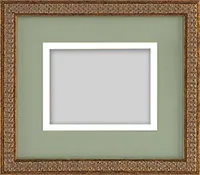Ok
Ok
What is the question
Cancel
My Account
Log In
Favorites
Saved Designs
Log In
Shopping Cart
Search
Glass Cleaner
Definition
Glass Cleaner is a cleaning solution formulated to safely clean glazing materials used in picture framing, including both glass and acrylic. For artwork protection, only ammonia-free cleaners should be used, as ammonia can damage coatings, degrade UV-protective layers, and cause long-term harm to frames and art.
Functions of Glass Cleaner in Framing
- Dust and smudge removal: eliminates fingerprints, dust, and surface residues from glazing.
- Streak-free clarity: maintains clear visibility of the artwork.
- Preservation of coatings: ammonia-free solutions protect UV-filtering and anti-reflective coatings from deterioration.
- Safe for acrylic: certain cleaners are formulated to prevent streaking or hazing on acrylic surfaces, which are more sensitive than glass.
Types of Glass Cleaners
- Ammonia-Free Glass Cleaner: designed specifically for use with conservation glass, museum glass, and acrylic glazing.
- Acrylic-Safe Cleaners: specialized formulations that prevent scratching and static buildup on acrylic sheets.
- General Household Glass Cleaner: often contains ammonia and should be avoided for framing use, as it can damage protective coatings and materials.
Considerations When Using Glass Cleaner
- Avoid spraying cleaner directly on the glazing while framed artwork is present; instead, spray onto a microfiber cloth to prevent seepage into mats or artwork.
- Always use a lint-free microfiber cloth or cotton cloth-paper towels can scratch acrylic or leave fibers.
- Check manufacturer recommendations for cleaning museum-grade or anti-reflective glass, as some require specific solutions.
- Do not use abrasive pads, as they can scratch coatings or acrylic surfaces.
Best Practices
- Choose ammonia-free cleaners labeled safe for both glass and acrylic.
- Spray the cloth, not the glazing, to avoid liquid wicking into the frame.
- Use gentle circular motions to reduce streaks and prevent scratching.
- Store cleaners in a climate-controlled space to preserve their chemical stability.
FAQs
- Can I use Windex® or similar household cleaners on framing glass?
- Most household glass cleaners contain ammonia, which can damage coatings and should not be used. Only ammonia-free versions are safe for conservation glass or acrylic.
- What is the best way to clean acrylic glazing?
- Use an acrylic-safe, ammonia-free cleaner with a microfiber cloth. Avoid paper towels, as they can scratch the softer acrylic surface.
- How often should I clean glazing?
- Clean only as needed-frequent unnecessary cleaning increases the risk of scratches or abrasion.
Related Terms









